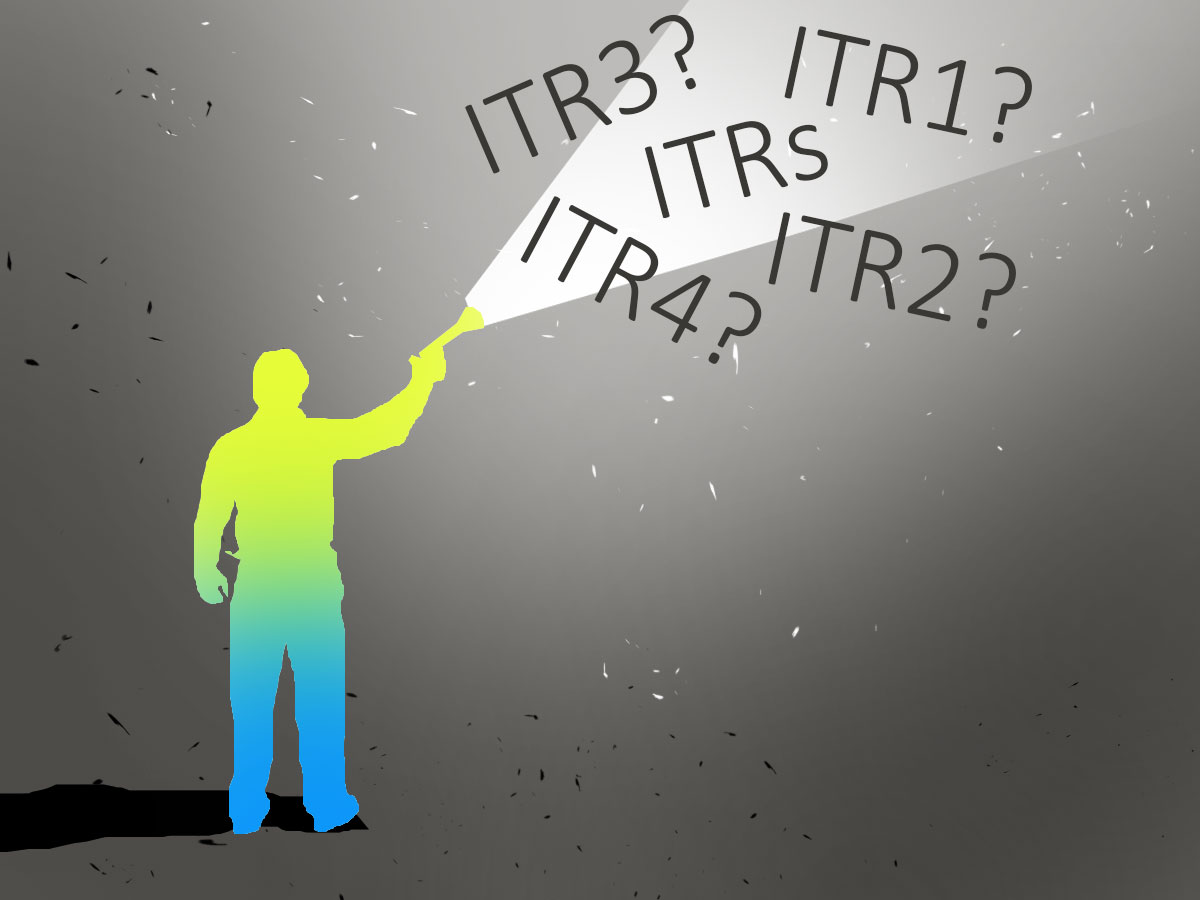A new schedule has been added to report income from cryptocurrencies and other Virtual Digital Assets.

The Central Board of Direct Taxes notified the Income-Tax Return (ITR) Forms 2, 3, and 5 last week for filing returns for assessment year (A.Y.) 2024-25.
ITR forms 1, 4, and 6 were notified earlier. ITR 2 and 3 have a few changes that individual taxpayers need to be aware of so that they comply with the tax laws.
"They include new fields aimed at enhancing the transparency of transactions and increasing disclosures in claiming deductions," says Ronodeep Dutta, counsel, AQUILAW.
ITR-2 is for individuals or HUFs who receive income from sources other than profits and gains from business or profession (and who don't qualify for ITR-1, say, because they have more than one house or income above Rs 50 lakh).
ITR-3 is for individual taxpayers who generate income from a business or profession.
Ankit Jain, partner, Ved Jain & Associates, estimates that around 80 lakh people would be required to file ITR 2 for the financial year 2023-2024.
Here are some of the significant changes made to ITR-2 and ITR-3 for FY 2023-2024:
Choice of tax regime
The new tax regime will be the default option. Taxpayers will have to opt out explicitly to use the old tax regime.
Says Pallav Pradyumn Narang, partner, CNK: "Those filing ITR 2 can select the old scheme in the ITR form itself, while assessees using ITR 3 will have to file Form 10-IEA to avail of this facility."
Aviral Kapoor, partner, Alagh & Kapoor Law Offices, informs that this option is only available until the due date of filing under Section 139(1).
Contributions to political parties
Details of contributions to political parties must be disclosed when claimed as a deduction.
Says Alay Razvi, partner, Accord Juris LLP: "The date of payment, mode of payment, cheque number, and IFSC code must be disclosed." Keep proofs of contribution, such as receipts, handy.
Capital gains
To avail of tax relief on capital gains, individuals have to deposit the gains in specified bank accounts (under the Capital Gain Account Scheme).
Earlier, only the amount deposited had to be disclosed. Now, both forms require disclosure of details related to these bank accounts.
Says Narang: "This will prevent gaming of the system and will ensure that only those who have opened up these accounts are able to benefit from the relief provided."
Virtual Digital Assets (VDAs)
A new schedule has been added to report income from cryptocurrencies and other Virtual Digital Assets (VDAs).
"VDA income is now required to be reported in a more structured manner under the Capital Gains Schedule. Aim of this change is to provide a more detailed account of VDA transactions," says Kapoor.
Disabled dependant
To avail of deductions for medical treatment of a disabled dependant, more details will have to be provided.
Says Razvi: "Ensure you give details like type of dependant, their PAN, and fill out the required details in Form 10IA."
Unique Document Identification Number (UDIN)
The updated ITR-3 form now asks for more detailed information if the taxpayer is audited under Section 44AB, including reason for the audit and the UDIN.
"This enhances traceability and authenticity. It will promote accountability in audit processes and reduce fraud risk," says Maneet Pal Singh, partner, I.P. Pasricha & Co.
Legal Entity Identifier (LEI)
The Reserve Bank of India has made it mandatory for banks to collect the LEI of both remitter and beneficiary where the transaction amount is Rs 50 crore or more.
The LEI is a global identification code for legal entities participating in financial transactions.
Says Jain: "It helps improve transparency and combat financial crime. Where a refund claim of more than Rs 50 crore is made in the tax return, the government is now asking for the LEI for hassle-free processing of refund."
Adds Singh: "Individuals with income above Rs 50 lakh may be affected by this new disclosure norms."
Key changes in Forms 1 and 4
Choice of tax regime
- ITR-1 filers can indicate their tax regime choice directly in the return
- ITR-4 filers need to submit Form 10-IEA to opt out of the new tax regime
Section 80CCH deduction
- New column added in ITR Forms 1 and 4 for claiming deduction under Section 80CCH
- Relates to individuals in the Agnipath Scheme subscribing to the Agniveer Corpus Fund after November 1, 2022 for tax deduction
Receipts in Cash column in ITR-4
- ITR-4 now includes a "Receipts in cash" column for claiming an enhanced turnover limit
- Finance Act 2023 increased the turnover threshold from Rs 2 crore to Rs 3 crore for presumptive taxation under Section 44AD, provided cash receipts don't exceed 5 per cent of total turnover
Source: I.P. Pasricha & Co
Disclaimer: This article is meant for information purposes only. This article and information do not constitute a distribution, an endorsement, an investment advice, an offer to buy or sell or the solicitation of an offer to buy or sell any securities/schemes or any other financial products/investment products mentioned in this article to influence the opinion or behaviour of the investors/recipients.
Any use of the information/any investment and investment related decisions of the investors/recipients are at their sole discretion and risk. Any advice herein is made on a general basis and does not take into account the specific investment objectives of the specific person or group of persons. Opinions expressed herein are subject to change without notice.
Feature Presentation: Ashish Narsale/Rediff.com










